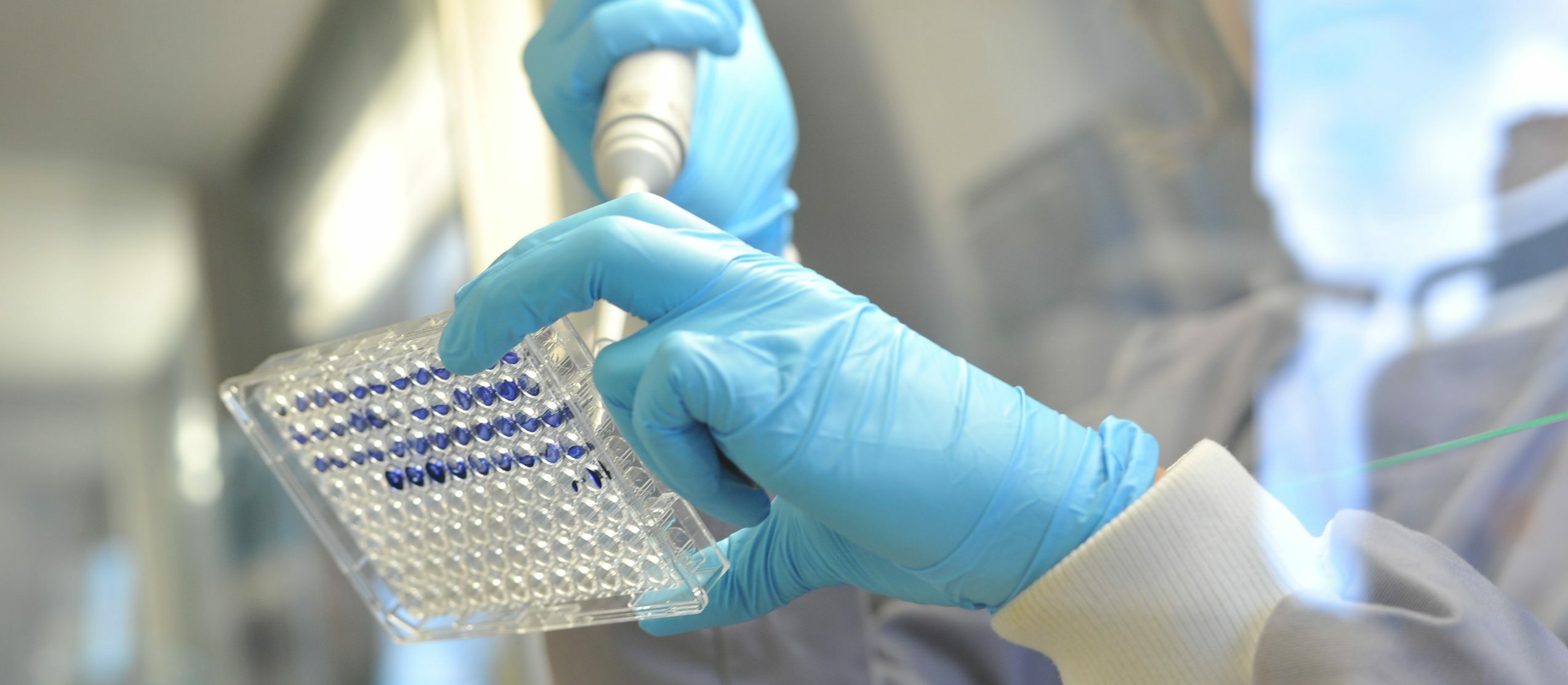
11 Jan 2019 Research
Lymphoma: Understanding relapse and treatment resistance
What is this research looking at?
Our immune system is remarkable. It is made up of many different types of immune cells that work together to protect the body from infection by pathogens such as bacteria, viruses and parasites.
We are investigating what happens when a certain type of cell in the immune system, known as B cells, starts growing out of control and develops into blood cancers such as leukaemia, lymphoma and myeloma.
We want to know what happens when B cells mature normally from precursor cells in the bone marrow and discover what has gone wrong when they turn into cancer cells instead.
Considerable success has been achieved in the treatment of lymphoma. However, a significant unmet need remains: roughly 40% of patients either do not respond to treatment or the condition recurs after treatment. Currently, our ability to predict which patients will fail treatment is poor.
By taking a detailed look at B cells as they develop and specialise, we can spot small groups of dangerous cells that are particularly likely to turn into cancer and identify the genetic faults that drive B cells to grow out of control.
We are using our knowledge to create new models for the development of B cells and blood cancers in the lab, so we can find new ways to treat or even prevent these deadly diseases.
Our research uses a model of lymphoma to test the response to treatments and development of resistance. A main advantage of the model is that we can interrogate these questions on a well-defined scenario and can perform iterative tests and predictions. Further, the model generated in this project will allow initial testing of novel treatments.
What could this mean for people with leukaemia?
This research could inform the medical decision of when to use combination and novel therapies for patients with a higher probability of developing resistance to standard treatment, alongside bringing safer treatments to patients.
Official project title: Development of a model system to study diffuse large B cell lymphoma clonal evolution
Related posts
15 June 2018
Nick Boles’ Ambulatory Care Unit opening speech
An edited extract of the speech Nick Boles MP made at the official opening of the Leukaemia UK Ambulatory Care Unit.
11 January 2019
Leukaemia: Investigating stem cells to prevent cancer
Dr Alice Giustacchini, University College London and John Goldman Fellow
29 November 2021
John Goldman Fellowship awarded to Dr Pramila Krishnamurthy
Leukaemia UK is proud to announce Dr Pramila Krishnamurthy of King’s College Hospital and King’s College London as a Leukaemia UK John Goldman Fellow co-funded by Rosetrees Trust. Dr Krishnamurthy will be using the fellowship to better understand why some leukaemia patients relapse following a stem cell transplant, and how donor lymphocyte infusion can help prevent this.
24 August 2022
Non-existent awareness of leukaemia symptoms “extremely worrying” – say leading UK leukaemia charities, as they launch memorable new campaign to get people “parroting on” about the symptoms
People over 55 also underestimate their risk, thinking that leukaemia is a childhood disease. Only 11% of over 55s thought that they had the greatest risk of leukaemia[1], whereas in…